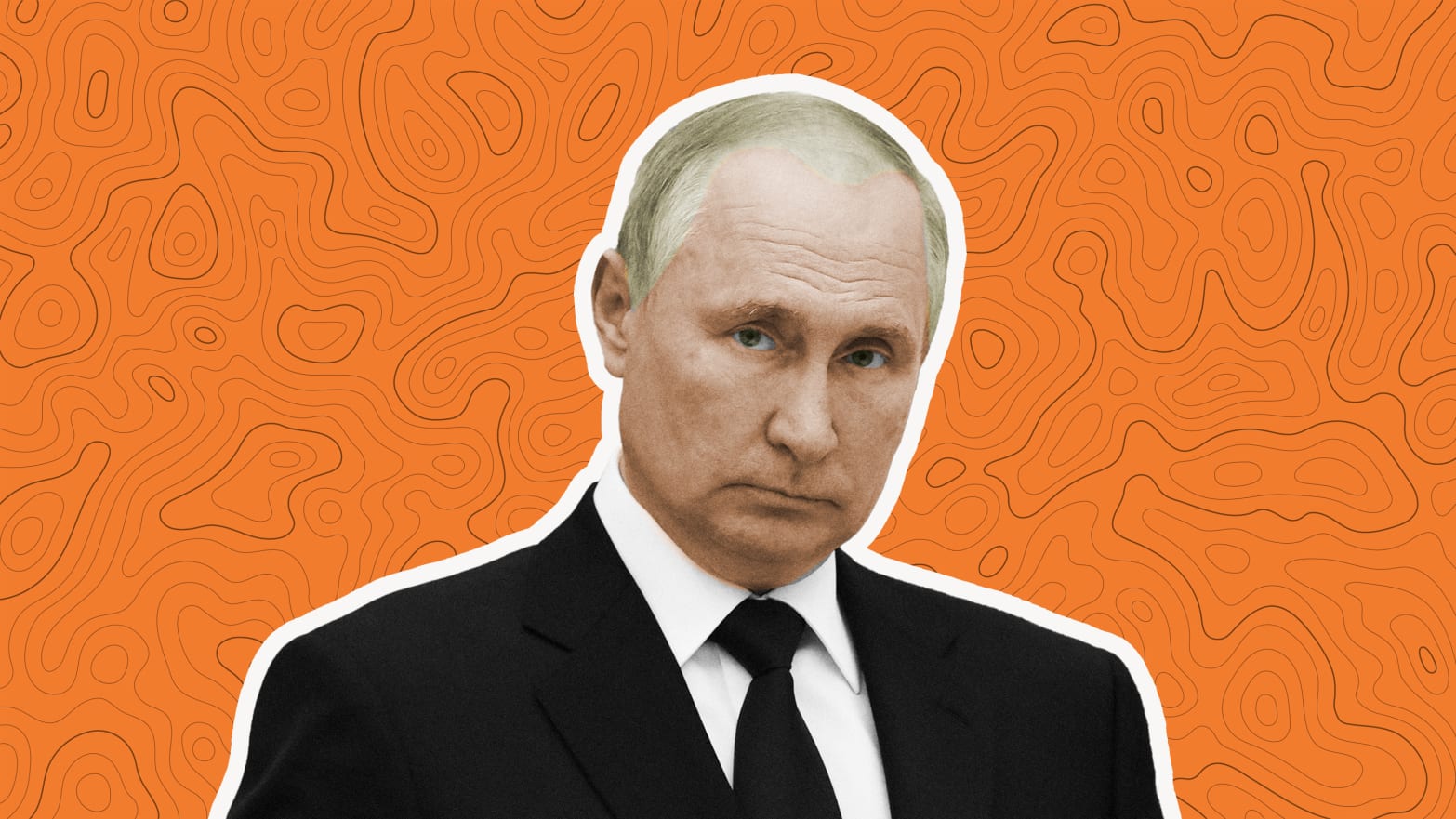Vladimir Putin’s invasion of Ukraine has done more than leave the ruble without a cause. “I don’t have enough to take a shit,” gripes Vadim fumbling for the 60 rubles, about 44 cents, needed to unlock the pay toilet at the Khoroshevo railway station.
Three weeks into the war, Russia’s financial constipation is unmistakable. The West first sanctioned the country’s banking sector. The global financial system then took command and gridlocked practically every money thoroughfare between Russia and the rest of the world. Visa and Mastercard evaporated. Google and Apple shut off their digital payment systems. Insurance policies vanished. The Big Mac is no more.
And now, in St. Petersburg, Sveta—whose name has been changed for her safety like everyone in this story—is seeking blossoms imported from the Netherlands.
“No Dutch flowers?” the 30-year-old woman asks Olga, the florist in the lobby of the Gostinyi Dvor Metro station, site of many of the anti-war demonstrations and where at least 1,000 protesters so far have been arrested. “How are you going to stay open without Dutch flowers?”
“Fuck them,” replies the seventy-something flower-seller. “I’ll head back to my village and grow the fucking flowers in the garden.”
Sveta, a lawyer who owns a business consultancy, laments that Putin’s ham-fisted control of Russian media has twisted a majority of the country’s 145 million people into generations of Olgas. “The number of young people who support Putin’s madness is terrifying,” she explains. “We’re all upset about the related bans, like Netflix and Spotify, which only reinforce the suppression of freedom of speech. With no information, Putin’s zombification of Russia will accelerate.”
Yet tapping into Russia’s fondness for dark humor, Sveta adds, “we cannot force McDonald’s to stay, and we may even emerge healthier for it.”
Nearby, outside the Cherneshevskaya Metro Station, a Molotov cocktail’s throw from Putin’s childhood neighborhood, two middle-aged women are having a conversation.
“If Putin didn’t go to the Ukraine they would be on our doorstep this year,” says the first woman. “America were going to send thousands of Nazis into Russia.”
“True,” her friend agrees. “Someone from the Ukraine was writing to me, terrorizing me on my phone. I erased all the messages. That’s how the Ukrainian secret police tracks us.”
“What’s the difference for us,” says the first. “We had kasha, potatoes and herring, and we will still have kasha, potatoes and herring. I don’t need parmesan cheese.”
“We live fine,” is the second woman’s verdict. “Let everyone in Russia live like us.”
Back in Moscow, there’s an argument going on between two old friends in an apartment. They’re reading an article on Russian military actions in Ukraine as described in the popular ultra-nationalist newspaper Zavtra, which is owned by the 84-year-old novelist and Putin pal Alexander Prokhanov.
The headline blares: Going Forward, the Town of Izyum is Liberated. Nazis are Killing the Un-Loyal. We Liquidate Military Criminals.
“Putin’s propaganda has turned us into bastards, monsters,” says Boris, a 65-year-old translator.
“The president is protecting us from a Nazi invasion,” fires back his life-long friend Nikolai, a doctor and frequent visitor to Miami. “Why do you not support him? On every particular point, Putin’s position is concrete.”
Boris scoffs: “There’s no way to measure that under a totalitarian regime where all the polls are rigged.”
Across Moscow, at the hipster Dada Cafe, Volodya slides the right side of his palm across his throat, an old Russian sekir baska or “axe-head” gesture that signals: “I’m fed up with this” to his companion. Volodya lowers his voice to barely a whisper. “This scum, Putin, should be crushed,” he adds. Volodya then raises his voice for others in the café to hear. “I officially support the operation conducted by the President of Russia Vladimir Putin.”
A woman at the adjoining table stiffly nods her head. “NATO is making dirty bombs in the Ukraine,” she says. “They’re all Nazis.”
“What’s most horrifying,” Boris wrote in his last message from Moscow, “is the efficiency of Putin’s propaganda. We are caught in a shitload of fish.”
Russian culture is rich in off-color expressions and double entendres, this one makes it plain that the average Russian has been ensnared in Putin’s shit and there’s nothing anyone can do to escape.
Many of the expressions favored in these parts reflect the great gulf between dreams of what might be and the reality of what is.
Perhaps the illustration that best describes what Putin has created is a line taken from the film version of Mikhail Bulgakov’s satirical novella The Heart of a Dog, the story of a professor who transplants the testicles of a freshly dead, drunken apparatchik into a spotted puppy named Sharik.
The result is Sharikov, an uncontrollable fascist whose lying and thievery makes everyday life in Russia unbearable. “What have I done?” the professor moans. “I’ve turned a perfectly nice little dog into a son of a bitch.”
The professor ultimately manages to neuter Sharikov, much in the same manner the West is using sanctions to spay Putin's totalitarian regime. For the moment, however, the economic surgery is in large part limited to removing imported Italian cheese from the pasta and Starbucks beans from the iced lattes. That will change soon enough.

